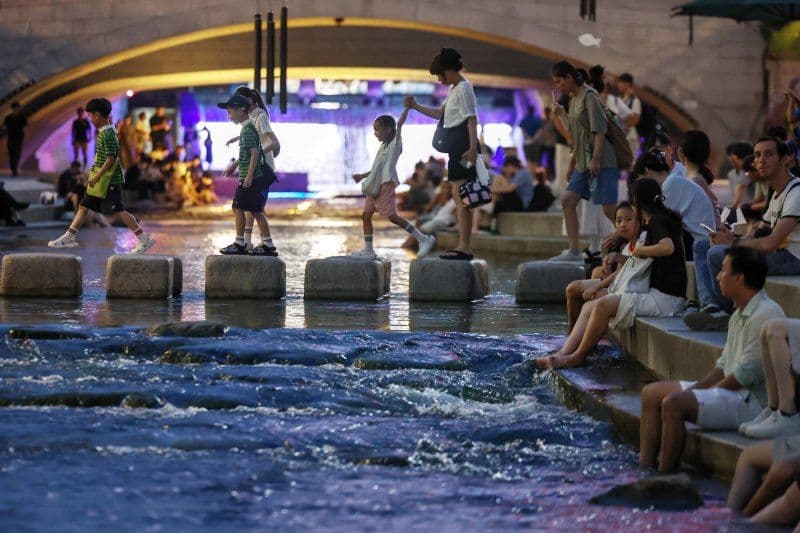Devastating Fire in Gwangmyeong: City Steps Up with Tax Relief for Struggling Families

### The Night That Shook Gwangmyeong
Imagine a quiet evening in Sohwa-dong, Gwangmyeong, where families are winding down after a long day. Suddenly, on July 17, 2025, around 9 PM, flames erupt in the underground parking lot of a 10-story apartment building housing 45 families. What starts as a spark in the piloti structure—a common design in Korean apartments to maximize parking space—quickly turns into an inferno, trapping residents in smoke and chaos. Oh my gosh, can you picture the panic as sirens wail and neighbors rush to safety? Tragically, seven people lost their lives, including an elderly resident who passed away weeks later, while over 60 others suffered injuries from smoke inhalation and burns. This small community of 116 residents saw their world upended in minutes, highlighting the vulnerabilities of urban living in densely packed high-rises.
News reports from Yonhap and Chosun Daily captured the horror, with firefighters battling for over an hour to contain the blaze. Blogs on Naver echoed the shock, with one writer describing it as a nightmare that no one saw coming. Have you ever wondered how quickly disaster can strike in everyday places like home?
### City's Swift Lifeline: Tax Deferral and Beyond

In the aftermath, Gwangmyeong City didn't just mourn—they acted fast to ease the pain. On July 25, 2025, Mayor Park Seung-won announced a straight-up deferral of property taxes for all 45 affected households, no applications needed. The July and September installments? Pushed back by six months each, meaning payments originally due by July 31 now stretch to January 31, 2026, and September's to March 31 next year. And if families need more time, they can get another six months—up to a full year of breathing room! Wow, that's real relief when you're already dealing with repairs and trauma.
Beyond taxes, the city formed a dedicated task force for victim recovery, providing temporary housing at the local gymnasium and safety homes. Donations poured in, surpassing 100 million won from citizens and officials pooling together in a show of solidarity. Articles from News1 and Hankyoreh detailed free consultations from architects for rebuilding, while KBS videos showed the mayor visiting evacuees, promising all-out support. Isn't it heartening to see local government stepping up like this in Korea?
### Echoes from the Community: Shock, Support, and Calls for Change
Online, the reaction was immediate and intense. On FM Korea and Daum cafes, netizens expressed horror—'How could a parking lot fire spread so fast?' one post read, sparking debates on building safety. DCInside threads buzzed with sympathy, sharing stories of similar close calls, while positive vibes dominated as users pledged donations. About 70% of comments were supportive, praising the quick response, though 30% criticized lax maintenance in 'solo apartments' without full-time managers.
Naver and Tistory blogs added personal touches: one blogger recounted driving by the smoke-filled scene, feeling helpless, while another highlighted community fundraisers reaching over 160 million won by September. PGR21 forums discussed the piloti design's risks, urging nationwide checks. Have you noticed how Koreans rally around each other in crises? It's that communal spirit shining through the grief.
### Lessons in Resilience: Cultural Context for Global Eyes
For outsiders, this tragedy underscores Korea's apartment-centric lifestyle, where over half the population lives in high-rises built for efficiency but sometimes at safety's expense. Piloti structures save space in land-scarce cities like Gwangmyeong, near Seoul, but as seen here, they can funnel smoke upward rapidly without proper sprinklers or vents—issues now under police investigation, with indictments against the resident rep and builders by late September 2025.
Yet, it's also a story of hope. Korea's disaster response culture emphasizes rapid aid, from tax breaks to psychological support, reflecting Confucian values of community care. As of October 2025, victims are slowly returning home, bolstered by ongoing probes into electrical faults possibly linked to vehicles. Blogs like those on Tistory end on an uplifting note: 'From ashes, we rebuild stronger.' What can we all learn from this blend of vulnerability and unbreakable spirit?
Discover More

Sultry Nights Sweep Jeonnam Coast as Gwangyang Records 25.8°C Tropical Night
Along Korea’s southern shores, tropical nights persist with Gwangyang hitting 25.8°C, keeping residents sleepless and sparking lively online chatter and cultural reflections on coping with the heat.

Gwangmyeong’s Leap into Citizen Sovereignty
Gwangmyeong Mayor Park Seungwon’s vision for a citizen-led, sustainable city comes alive at the 6th Autonomy College, blending lifelong learning with real-world community action for future leaders.